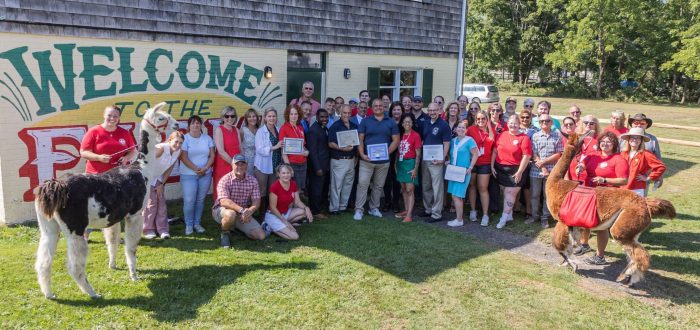The bill has passed in Albany, but awaits governor’s signature
By Mallie Jane Kim
The future of a bill to enhance protections for horseshoe crabs in New York waters is unclear, but advocacy around the issue is heating up.
If signed into law by Gov. Kathy Hochul (D), the bill would prevent the taking of horseshoe crabs for commercial or biomedical purposes in New York. The bill was passed by the state Assembly and Senate June 7, and though it has not yet been called up by the governor for consideration and potential signature or veto, advocates for and against the bill have been working hard to make their voices heard.
“Our job is to make sure the governor is aware that the horseshoe crab is a beloved species, it’s in danger and she can help it,” said Adrienne Esposito, executive director of the Farmingdale-based Citizens Campaign for the Environment, which is spearheading efforts to encourage the governor to sign the bill.
Fifty-eight groups signed on to a September letter urging Hochul to adopt the bill, including Audubon, Sierra and Rotary clubs from around Long Island, as well as the Port Jefferson Harbor Commission, The Whaling Museum & Education Center of Cold Spring Harbor and the Setauket Harbor Task Force.
Thousands of citizen postcards supporting the bill are on the way to the governor over the next weeks, according to Esposito, who predicts the bill won’t get called up before December, a pattern she has noted for environmental bills over the last few years.
“The tough bills are the ones they wait longer to call,” she said. “The issue now is to make sure the public raises their voice.”
Horseshoe crabs, which are relatives of arachnids like spiders and scorpions, are considered “living fossils” since they have been around for an estimated 450 million years, but they have faced a steady decline in recent decades due to harvesting and habitat loss, impacting bird species that feed on horseshoe crab eggs during migration, like red knots. Commercial fisherman rely on horseshoe crabs as bait for whelk, and its blue blood is prized for biomedical research and vaccine development — though there are not currently any permits for biomedical harvesting in New York.
Local fisheries oppose the bill
Opponents of the bill don’t believe a complete ban on harvesting horseshoe crabs is an appropriate way to protect the species, since it is already monitored and regulated by the Atlantic States Marine Fisheries Commission and New York State’s Department of Environmental Conservation.
“If they felt that the horseshoe crab stock was in danger, we would hear about it first,” said Bonnie Brady, executive director of Montauk-based Long Island Commercial Fishing Association. “To use a law to regulate a fishery, when they are already regulated by appropriate bodies that have the science to back it, is just not the way to allow fisheries to survive.”
Some individual members of the association have written to the governor advocating against the ban, according to Brady, who added that she believes the proposed regulations are based on feeling, not fact.
“No one wants to see [horseshoe crabs] become depleted to the point where their continued vibrance is in danger,” Brady said, explaining that whelk fishing is a significant aspect of day fishermen’s seasonal catch.
“It would be like suddenly someone says, ‘We’re going to take 20% of your paycheck going forward without any scientific basis for doing so and without any compensation,’” she said. “Would you be OK with that?”
The Long Island Farm Bureau, based in Calverton, is also advocating against the bill with state lawmakers on Long Island and the governor’s office in Albany, according to the bureau’s administrative director Rob Carpenter.
He emphasized that the state DEC’s efforts to preserve the species since the population levels in New York were rated “poor” in 2019 — including voluntarily limiting the annual take of horseshoe crabs to 150,000 and requiring mesh bait bags to reduce the amount of crab that fisheries need to use in whelk traps — should be given a chance.
“Before we go and ban everything, I think that needs an opportunity to really work,” he said.







